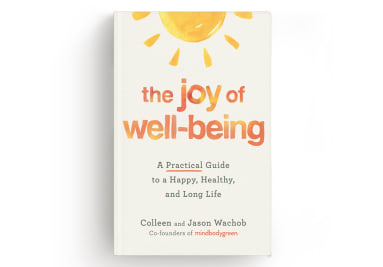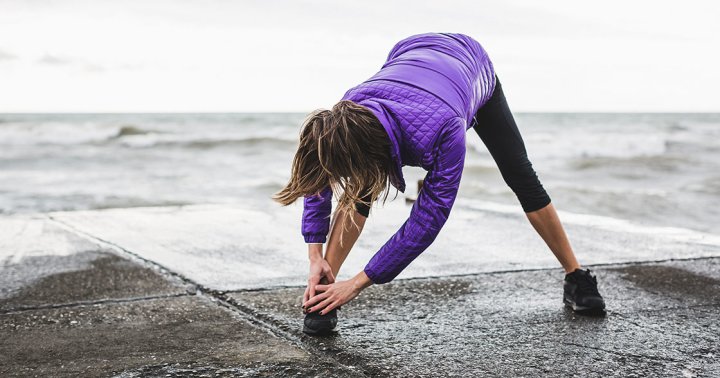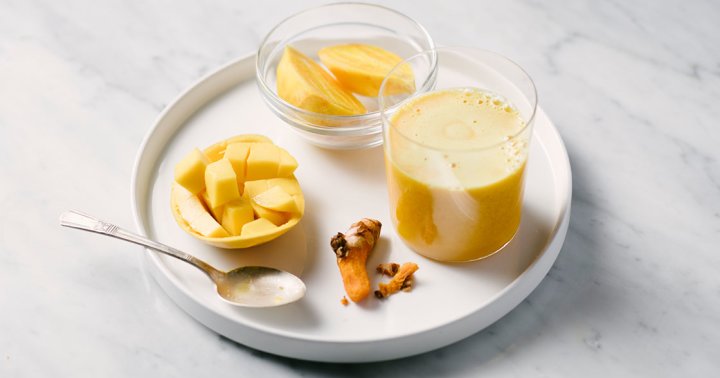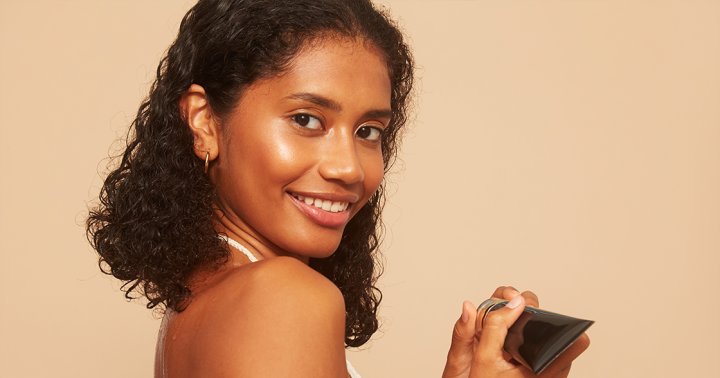3 Well-Being Habits That Can Improve Your Skin & (Bonus!) Bring You Joy
Everything is skin care.


mbg Beauty Director
mbg Beauty Director
Alexandra Engler is the beauty director at mindbodygreen and host of the beauty podcast Clean Beauty School. Previously, she's held beauty roles at Harper's Bazaar, Marie Claire, SELF, and Cosmopolitan; her byline has appeared in Esquire, Sports Illustrated, and Allure.com.
June 6, 2023 Our editors have independently chosen the products listed on this page. If you purchase something mentioned in this article, we may Everything is skin care. And on today’s episode of Clean Beauty School, we get into all of the ways that focusing on well-being can not only impact your skin, but vastly improve your life. To do so, I’m having on a guest you probably know pretty well: mindbodygreen’s co-founder and co-CEO Colleen Wachob, co-author of the new book The Joy Of Well-Being: A Practical Guide To A Happy, Healthy & Long Life (she wrote it with mbg’s other co-founder, her husband Jason). They wrote the book to not only shed light on all the simple, effective ways you can improve longevity—but to find joy while doing it. “We wanted to bring more airtime and more focus to [well-being] tools that are time tested that so many of us can agree on—and also integrate the possibility of joy,” she says. “I worry that we’ve become so disconnected from what joy truly is. I think we all need to ask ourselves, ‘What is it about our lives that bring us joy?’”
Advertisement
This ad is displayed using third party content and we do not control its accessibility features.
And while finding joy is reason in-and-of itself to adopt new well-being habits, many of them come with the added perk of glowing skin. Sort of ideal, no? Be sure to tune into the whole episode to get all the intel on improving your joyspan, but in the meantime, here are three habits that can improve your health, happiness, and even skin. Getting enough high-quality sleep—and doing so consistently—is the foundation for a well-lived life. “If you don't eat well for a couple weeks, you'll probably be okay. If you miss some days at the gym or working out, you're going to be okay. If you don't sleep for three days, well, you're not gonna be the same human,” says Wachob, who’s had her own journey with sleep throughout her life that you can read about here. Sleep, too, is how and when your skin resets itself. During the REM cycle, our bodies release hormones that signal to our skin to rebuild and repair itself. This is when collagen and elastin rebuild, cellular detoxification happens, and epidermal framework repairs take place. Not only that, but it’s when the skin is most permeable, and therefore better able to absorb topical ingredients that can get to work on skin rejuvenation. There is no cream in the world that can replace 8 hours of sleep. This ad is displayed using third party content and we do not control its accessibility features. There are many things to consider when discussing nutrition: making sure you’re eating real, whole foods as much as possible, getting your fill antioxidant-rich plants, not following any plan that’s too restrictive. And one area that Wachob says she’s now prioritizing is eating enough protein. “In the 2010s it wasn't really about building muscle and building armor. But fast forward to 2023, people are talking about nutrition in a new way. Now I am super thoughtful about my protein intake and getting 30 grams of protein every day,” she says. “It’s about envisioning the type of life I want 30, 40 years from now and what type of body I want.” Ensuring you have a healthy, well-functioning body long-term means fortifying the infrastructure—your muscles. We see this play out in the beauty space, too. Beauty professionals are encouraging folks to eat more protein to support collagen and elastin production (collagen and elastin are the skin’s structural proteins). By providing the body with a robust assortment of amino acids, your skin has the tools it needs to create these important proteins. Mental health and the skin are deeply connected. On a physiological level, this can be explained through the skin-brain axis. Skin is both a stress perceiver (meaning it picks up on stress and sends signals to the brain) and a target of stress responses (meaning it signals stress happening in the body). One of the best ways to reduce stress is through relationships and connection. “There’s an interesting study that shows that nutrition has about a 20 percent impact on your mortality rate. Exercise and movement have about 30 percent influence on your longevity. But connection—being in a good relationship, having friends, having a partner—can actually impact your mortality rate by over 45 percent1,” she says. “We found that hugely inspiring, but you know, we don’t really learn how to build or maintain connections as we go on life’s journey.” Well, want tips on how to build those connections? Tune in here: This ad is displayed using third party content and we do not control its accessibility features.Advertisement
Advertisement

 Lynk
Lynk 
































